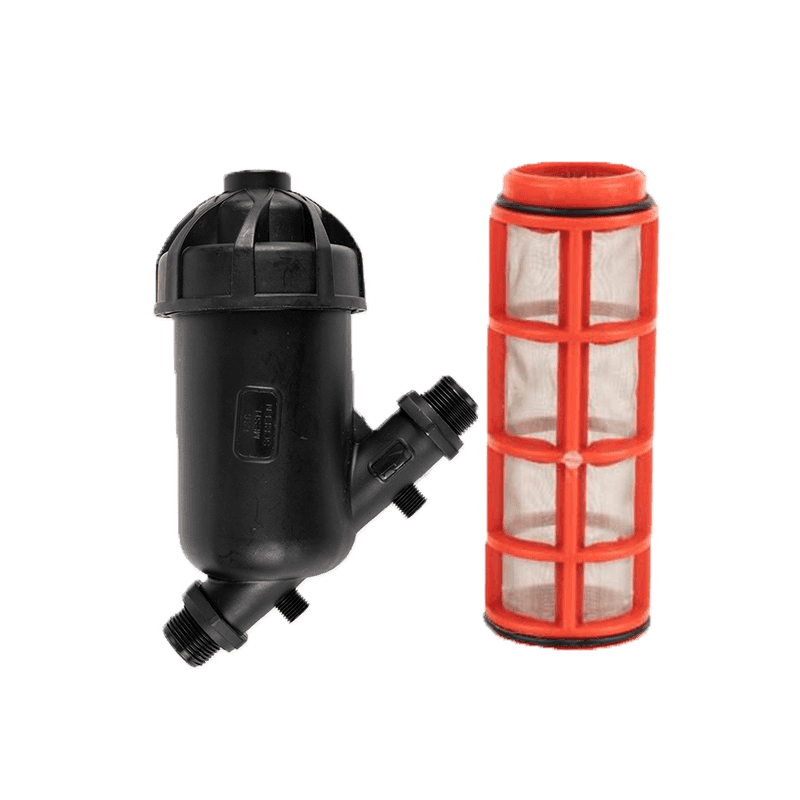The effectiveness of a garden irrigation filter in removing debris and sediment largely depends on its design, filtration mechanism, and the quality of its components. Some key factors to consider when assessing effectiveness include:
Filtration Capacity: This refers to the volume and size range of particles a garden irrigation filter can effectively capture and retain from the water supply. Filters with larger surface areas or multiple filtration stages typically have higher capacities, capable of trapping a broader spectrum of contaminants. They can handle anything from larger debris like leaves, insects, and twigs to finer sediment particles like sand, silt, and organic matter. Understanding the specific composition and size distribution of contaminants in your water source is crucial for selecting a filter with the appropriate filtration capacity to maintain water quality and prevent clogs in your irrigation system.
Filtration Efficiency: Efficiency measures how well a filter performs in removing contaminants from the water. It's not just about capturing particles but also about how thoroughly and consistently the filter cleans the water. Advanced filtration technologies, such as microfiltration, ultrafiltration, or reverse osmosis, offer high-efficiency options by using specialized membranes or media to effectively trap even the smallest particles and impurities. Features like graded density filtration, where the density of the filter media increases from the outside to the inside of the cartridge, enhance efficiency by capturing particles throughout the entire depth of the filter. Self-cleaning mechanisms or automatic backwashing further optimize efficiency by preventing buildup and maintaining a constant flow rate.
Flow Rate Maintenance: Flow rate maintenance is critical for ensuring consistent water delivery to your garden while the filter is in operation. Filters must balance efficient particle removal with minimal pressure drop to maintain adequate flow rates. Filters with large surface areas or low flow resistance designs can accommodate higher flow rates without compromising performance. Some filters incorporate bypass valves or pressure regulation systems to automatically adjust flow rates and maintain optimal pressure levels, especially in systems with fluctuating water demand or pressure variations. Regular monitoring of flow rates and periodic filter maintenance, such as flushing or cartridge replacement, helps prevent clogs and ensures uninterrupted water supply to your garden.
Compatibility: The compatibility of a garden irrigation filter refers to its suitability for the specific contaminants present in your water source and the requirements of your irrigation system. Different types of filters and filtration media are designed to target specific contaminants, such as sediment, chlorine, iron, or organic compounds. Conducting a water quality analysis or consulting with a filtration expert can help identify the predominant contaminants in your water and determine the most appropriate filter type and media for effective removal. Factors like pH levels, water temperature, and flow rates also influence filter selection and performance. Consider the compatibility of the filter with your irrigation system components, such as pipe sizes, fittings, and pressure ratings, to ensure seamless integration and optimal performance.
Durability: Durability is essential for the long-term performance and reliability of a garden irrigation filter, especially in outdoor environments exposed to harsh weather conditions and environmental elements. Filters constructed from durable materials, such as corrosion-resistant plastics, stainless steel, or reinforced polymers, offer superior strength and longevity. UV-resistant coatings or housings protect against sun damage and fading, while waterproof seals and gaskets prevent leaks and moisture ingress. Regular maintenance practices, such as cleaning, inspection, and filter cartridge replacement, help extend the lifespan of the filter and ensure continued performance over time.
YR9407A BSP3/4" irrigation screen filter

 By Admin
By Admin 